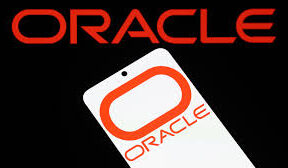- Generative AI has left some artists concerned that their work is being used in artificial intelligence models without their knowledge or permission.
- Ways are being explored that allow artists to create their own AI models and feed them with pre-existing relevant content.
- However, some artists say that AI-generated content helps them serve more customers, such as small businesses that may not be able to afford to pay.
- In this era of artificial intelligence, it’s a matter of bridging the gap between creators and AI companies. Expert
AI companies use the work of writers, artists, and other creatives to train their models, without any compensation or credit to the creators. But some AI companies are encouraging these creators to benefit from this practice, rather than opposing it.
Artists of old may not have had any idea of intellectual property rights (IPRs) when they created a piece of art.
But these days, the advent of generative AI has some artists worried that their work is being used in AI models without their knowledge or permission.
Misha Kaufman is the CEO of Fiverr, a multinational online marketplace that offers free freelance services.
“The way artificial intelligence is structured today, every single creation of any creator is being used to train models, and then when the results are obtained, those creators are neither compensated nor given any opportunity to profit from it.”
Fiveur recently held an event in New York to introduce ways that allow workers to build their own AI models and feed them with relevant content that already exists.
Mishakov says this will allow writers, artists and other creators to get models that closely resemble their style and clarity, and then they can present them to their clients.
Some freelancers are very optimistic. One of them is Zachary Whitmore, who says, “I feel like it gives you a better tool, more control over your work, over what you love, and over how you bring it to market.” “
Dee Smith is also a voice-over artist at Fiverr.
He says AI-generated voice-overs help him serve more clients, such as small businesses that might not be able to afford to pay him.
He says there are also customers who don’t necessarily need a perfectly accurate, beautiful, and beautifully articulate voice. They want something a little simpler.
What we’re doing is introducing a very innovative way to approach AI design, where the creator is at the center, says Misha Kaufman.
Fiverr isn’t the only company dealing with copyright issues between professional creators and AI.
Another company, Trip Adler, is the CEO of Created by Humans, a small company that works to settle disputes between authors of published content and AI.
He explains the issue by saying that there’s a lot of conflict between creators and AI companies right now. And the reason is simply that there is no simple way to license and integrate the two.
He added, “We are creating a marketplace for AI rights that allows creators to license their content and give their rights to AI companies. You sign and verify your identity.”
Adler says the way to do this is very simple, meaning you declare ownership of your books, choose licensing options. It only takes a few minutes and “you can license your books with AI.” He believes that in this way, before using any books to train AI systems, you have to get permission from the author.
“In this era of AI, it’s a matter of bridging the gap between creators and AI companies,” says Adler.






